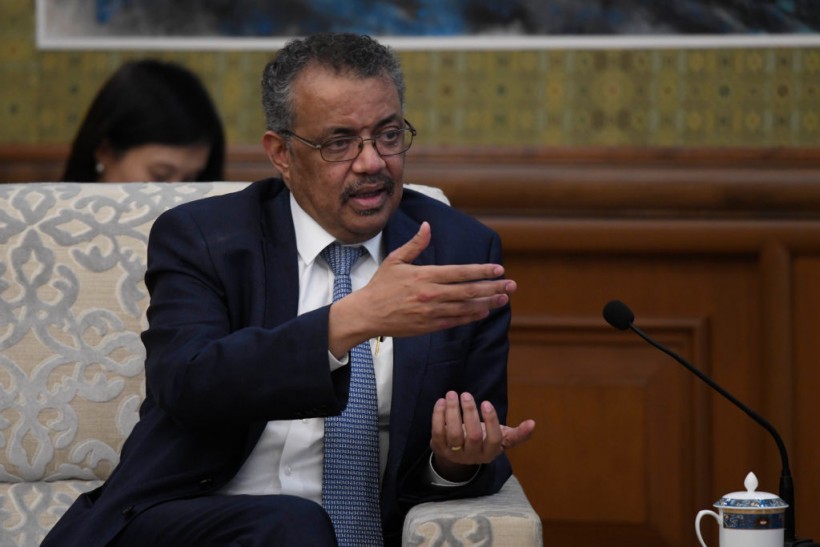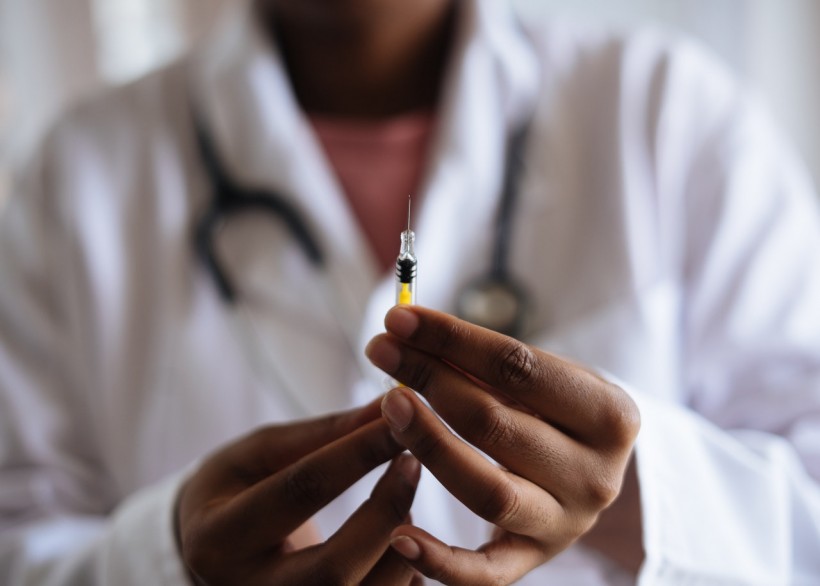
WHO has announced its plans to establish a vaccine tech transfer hub in South Africa.
According to the website of the United Nations (UN), the World Health Organization (WHO) aims for a facility that will "allow manufacturers from developing countries to receive training on how to produce vaccines."
It comes after the organization made a call in April for contributions to be made in establishing COVID-19 mRNA vaccine technology transfer hubs that can benefit low to middle-income countries.
These countries have lagged behind as the whole world rushes to inoculate its citizens against the coronavirus.
"In a crisis, low-income countries cannot rely on vaccine-producing countries to supply their needs," WHO Chief Tedros Adhamon Ghebreyesus said in regards to the inequitable access to vaccines during a media briefing in eneva.
WHO Vaccine Tech Transfer Hub: What We Know So Far

BEIJING, CHINA - JANUARY 28: Tedros Adhanom, Director General of the World Health Organization, meets with with Chinese State Councilor and Foreign Minister Wang Yi at the Diaoyutai State Guesthouse on January 28, 2020 in Beijing, China.
WHO held a virtual press conference where South African President Cyril Ramaphosa said that Africa now understood that COVID-19 vaccines will "never come" to the continent in time to save lives, according to France 24.
"They never arrive on time and people continue to die," he said.
Ramaphosa further emphasized the need for and the importance of having a vaccine tech transfer hub in the continent, saying it will help put Africa on a "path to self-determination."
Bio-pharmaceutical company Biovac will serve as the vaccine tech transfer hub's developer, while biotechnology firm Afrigen Biologics and Vaccines will be manufacturing the vaccines. Behind the scenes, a group of universities from Africa will provide the necessary scientific knowledge to produce mRNA vaccines.
mRNA Vaccines
Messenger RNA, or mRNA, technology has played a key role in the development of vaccines against COVID-19. Once in a human system, mRNA instructs the body to produce spike proteins that, in turn, leads to an immune response in the body. The immune response leads to the production of antibodies that provide the needed protection against the disease.
This technology is currently used by Pfizer-BioNTech and Moderna in their coronavirus vaccines.
Results of studies done on these mRNA vaccines have shown that Moderna has 94.1% efficacy, while Pfizer has 94.6%.
WHO efficacy standard for COVID-19 vaccines is at 70%.
Also Read: Pfizer vs Moderna: Comparing Two COVID-19 Vaccines from Side Effects to Storage Requirements
A Welcomed Development

WHO's planned vaccine tech transfer hub is welcomed news as the world continues to grapple with coronavirus mutations. These mutations have been challenging for vaccine manufactures as studies have shown that mutations may be able to evade antibodies.
A new vaccine tech transfer hub can be used to address mutation concerns, especially in Africa, where the Beta strain of the virus originated.
Despite the challenges posed by coronavirus mutations, the UN has reported that the worldwide COVID-19 cases have declined for the eighth week in a row. COVID-19-related deaths have also dropped for the seventh consecutive week.
Related Article: COVID-19: the United Kingdom, South Africa to Start Coronavirus Vaccine Pilot
This article is owned by Tech Times
Written by Isabella James













